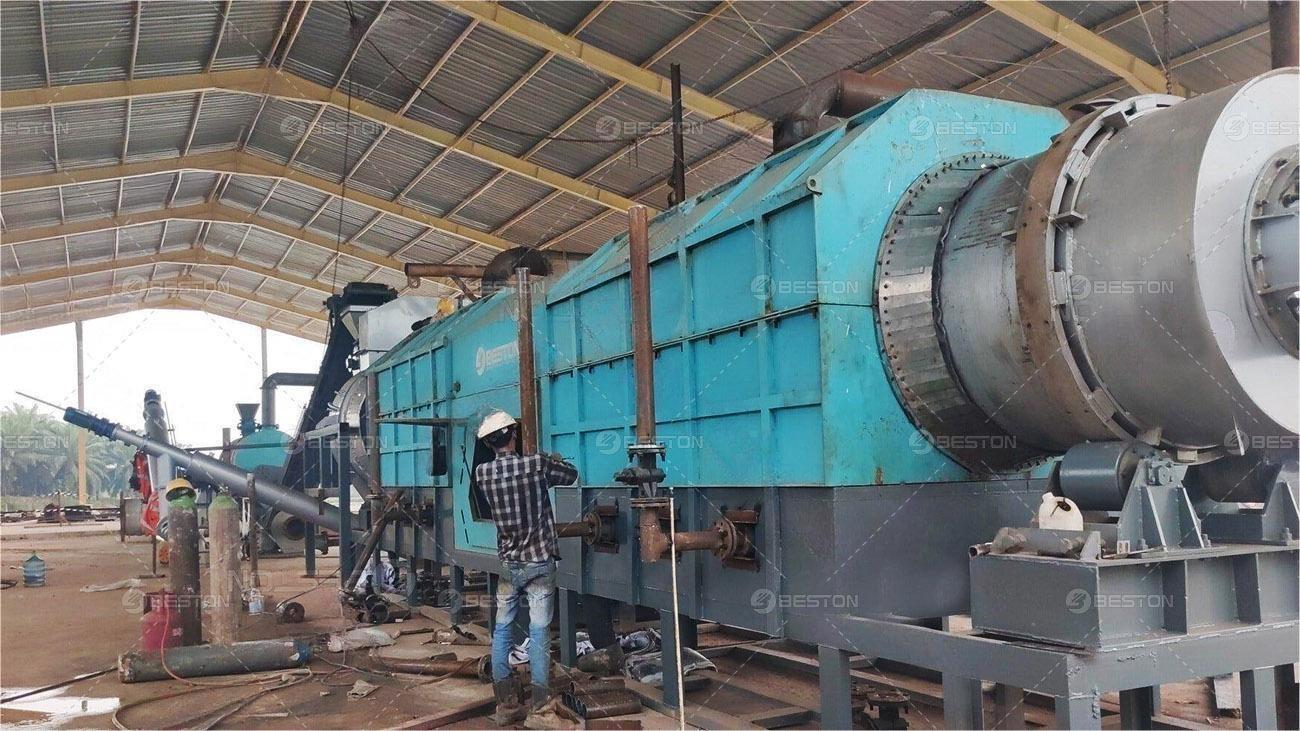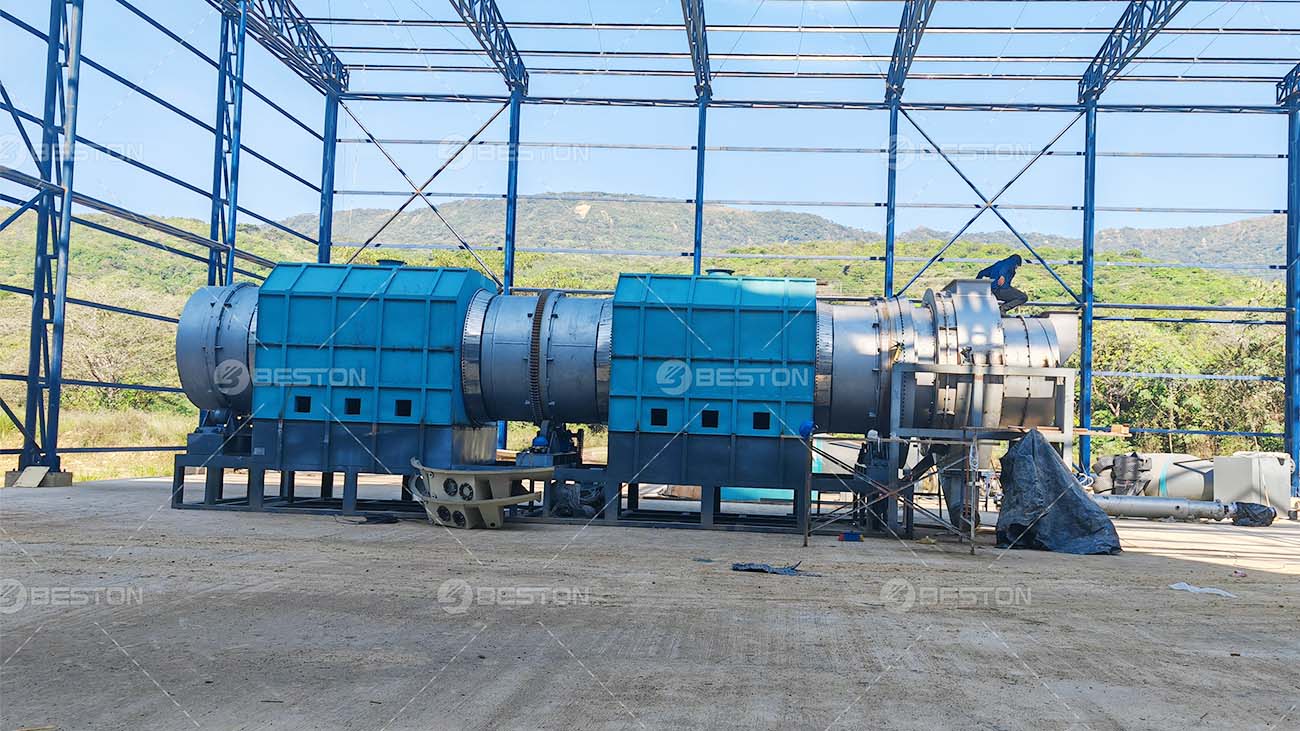Coconut processing factories are integral to the agricultural supply chain, producing a wide array of goods from this versatile fruit. However, increasing competition and market demands have pushed many businesses to explore innovative strategies for boosting profitability. One effective avenue is leveraging byproducts to create high-value products, such as charcoal, using advanced technologies like a coconut shell charcoal making machine.
This article delves into how coconut processing factories can expand profit channels by optimizing waste management and adopting sustainable practices.

Utilizing Coconut Shells for Charcoal Production
From Waste to Resource
Coconut shells, a significant byproduct of coconut processing, are often discarded or burned inefficiently, leading to wastage and environmental harm. Instead of treating these shells as disposable material, factories can transform them into charcoal, a high-demand product in both domestic and industrial markets.
A coconut shell charcoal making machine enables efficient conversion through the pyrolysis process. This technology involves heating the shells in an oxygen-deprived environment, producing high-quality charcoal with minimal emissions.
Market Potential of Coconut Shell Charcoal
The applications of coconut shell charcoal are diverse:
- Fuel Source
- Coconut charcoal is a renewable, energy-dense fuel ideal for both household use and industrial applications.
- Activated Carbon Production
- By further processing, coconut charcoal can be transformed into activated carbon, widely used in water purification, air filtration, and gold extraction.
- Shisha and Barbecue Markets
- The demand for coconut charcoal in the shisha and barbecue sectors has surged due to its long burn time, smokeless nature, and minimal ash residue.
Learning how to make coconut shell charcoal transforms this byproduct into a lucrative opportunity, turning waste into a revenue-generating asset.
Integrating Charcoal Machines in Coconut Factories
Operational Benefits
Incorporating a coconut shell charcoal manufacturing plant offers multiple advantages for processing facilities:
- Waste Reduction: Reduces the volume of discarded shells, lowering waste disposal costs.
- Energy Efficiency: Many machines produce syngas as a byproduct, which can be used to fuel factory operations.
- Sustainability: Reduces environmental impact by repurposing waste and minimizing greenhouse gas emissions.
Revenue Diversification
By investing in coconut shell charcoal manufacturing plant, factories can expand their product portfolio, offering charcoal and activated carbon alongside traditional coconut products like oil, milk, and desiccated coconut.
Value Addition Through Secondary Processing
Producing Activated Carbon
Further processing of coconut shell charcoal into activated carbon adds significant value. Activated carbon commands higher market prices due to its critical role in filtration systems, medical applications, and environmental protection.
Factories equipped with additional processing units can tap into premium markets, diversifying income streams while meeting global demand for sustainable materials.
Packaging and Branding Opportunities
Beyond production, factories can enhance profitability by focusing on value-added packaging and branding. Marketing coconut shell charcoal as a sustainable and eco-friendly product appeals to environmentally conscious consumers, particularly in developed markets.
For more coconut shell recycling solutions, please visit: https://www.bestongroup.com/

Economic and Environmental Advantages
Profitability
Expanding into charcoal production minimizes waste and maximizes resource utilization, ensuring higher returns on raw material investments. Additionally, the relatively low operational cost of coconut shell charcoal machines makes them accessible to medium and large-scale factories.
Sustainability
The process aligns with global sustainability trends, helping factories meet environmental regulations and improve their corporate social responsibility (CSR) profile. Sustainable practices are increasingly valued in international trade, opening doors to export markets.
Implementing Charcoal Production Systems
Assessment and Planning
Before incorporating a charcoal production system, factories should assess:
- Raw Material Availability: Ensure consistent supply of coconut shells to meet production requirements.
- Market Demand: Identify target markets for coconut shell charcoal and activated carbon.
- Technology Suitability: Choose machines with appropriate capacity and features based on production scale.
Collaboration and Marketing
Partnering with distributors, exporters, and eco-conscious brands can accelerate market penetration. Building relationships with agricultural cooperatives and government agencies may also provide access to subsidies or grants for sustainable technologies.
Conclusion
Coconut processing factories have immense potential to diversify revenue streams by repurposing coconut shells into charcoal and activated carbon. Using a coconut shell charcoal making machine not only enhances profitability but also contributes to sustainable waste management.
By adopting this innovative approach, factories can position themselves as leaders in both economic and environmental sustainability, ensuring long-term growth and resilience in the competitive market.